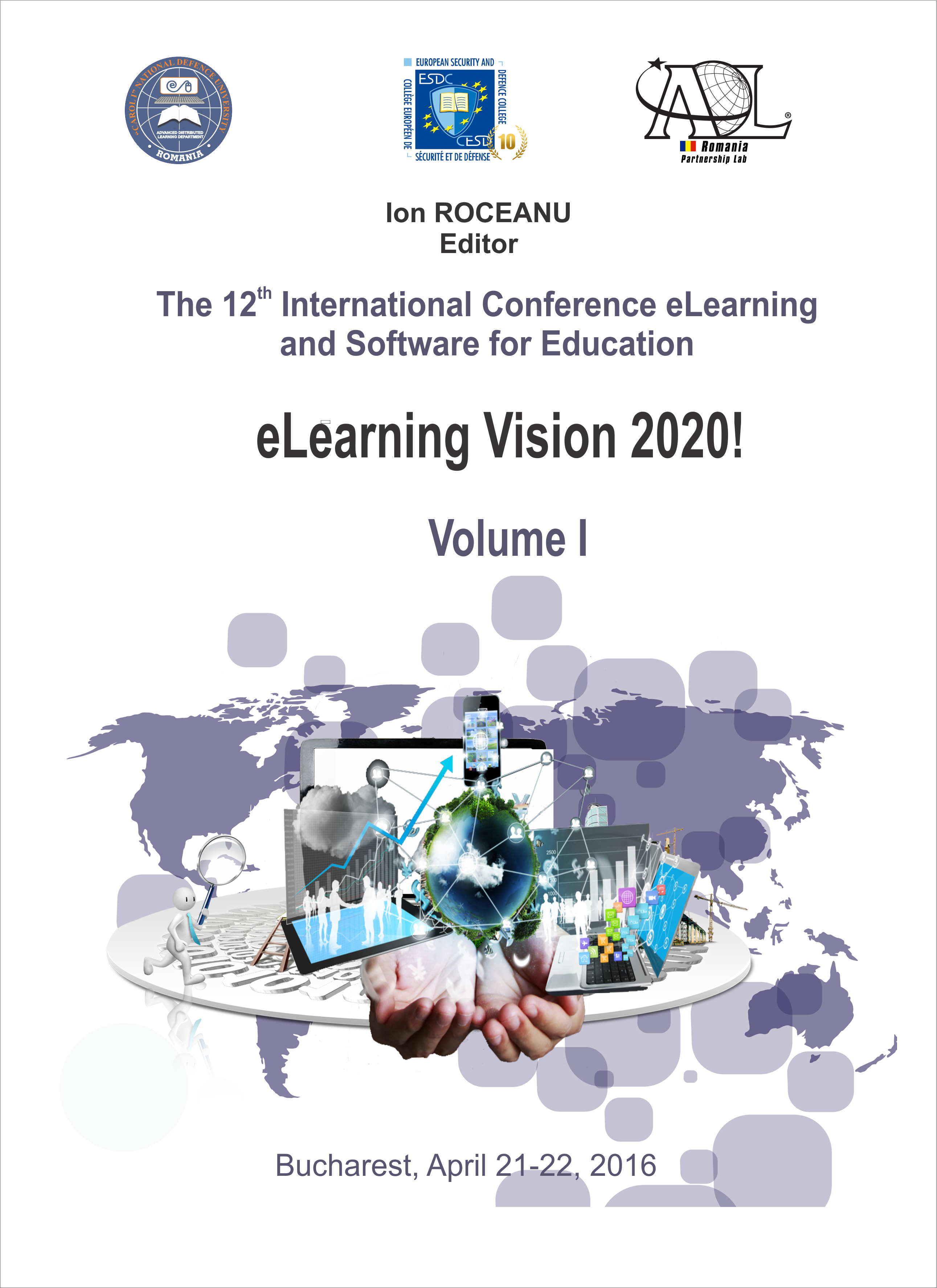E-LEARNING EXPERIENCES IN NON-EUROPEAN COUNTRIES (SYRIA AND TURKEY)
E-LEARNING EXPERIENCES IN NON-EUROPEAN COUNTRIES (SYRIA AND TURKEY)
Author(s): Corina Sak Colareza, Mona Hammami, Ioan Neacşu, Luciana MihaiSubject(s): Education, Regional Geography, Higher Education , ICT Information and Communications Technologies, Sociology of Education
Published by: Carol I National Defence University Publishing House
Keywords: higher education; e- Learning; electronic teaching methods; intelligent classroom;
Summary/Abstract: The Higher Education is an important and basic stage of building a society and the global trends in education by the e-learning process. It is about collaborative resources building, research, feedback, by supporting creativity, flexibility and individuality. This paper presents the e-Learning experiences of technology and strategy in the effor t to implement a competency educational program, in Syria and Turkey, with focus on higher education. It aims to improve the electronic teaching methods and to establish modern intelligent classrooms. This article presents experiences related to the management, organization and technology of the design and development processes of the e-learning services in the open education system in Syria (Syrian Virtual University, Damascus) (with 14 years’ experience) and Turkey (Ankara University and Istanbul University). The structure of the Open Education e-Learning Portal where all the e-learning services are presented altogether is extremely flexible. In consequence of special features for learners in many countries, which applied e-Learning phase in Higher Education, it offers new visions, increase responsibility and self-discipline, also it exists some limitations as: long time spent in front of computer, increasing plagiarism, impersonal relations with universities. Results quantifies the improved performance of the participants and efficacy when it comes to evaluate the training process. Overall, the facts recorded can be considered a model of good practice. It concludes that e-Learning has many significant advantages for the learner as: Accessibility and Mobility, Cost and Selection, Higher Retention, Global Opportunities. Wherefore it seems to be very convenient for learners, as well as for universities and it offers strategies that could be carried.
Journal: Conference proceedings of »eLearning and Software for Education« (eLSE)
- Issue Year: 12/2016
- Issue No: 01
- Page Range: 140-143
- Page Count: 4
- Language: English

